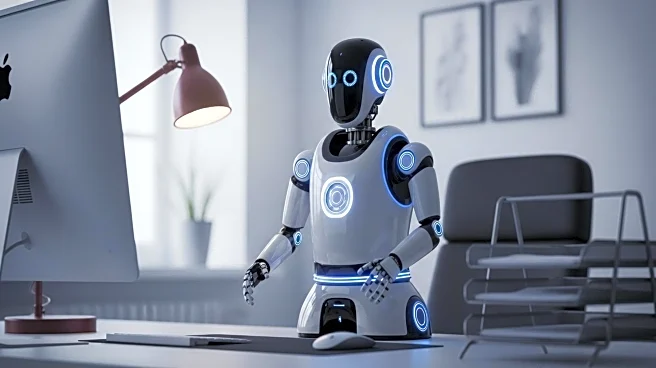What is the story about?
What's Happening?
Research from Stanford Social Media Lab and BetterUp reveals the prevalence of 'workslop,' AI-generated content that appears polished but lacks substance, in white-collar offices. Surveying 1,150 desk workers, 40% reported receiving such content, which often requires additional effort to correct. The study highlights the impact of AI on productivity, with workers spending time cleaning up AI-generated work rather than benefiting from increased efficiency.
Why It's Important?
The findings underscore the challenges of integrating AI into workplace processes, where the promise of increased productivity is often offset by the need for human oversight and correction. As AI tools become more prevalent, organizations must address the quality and reliability of AI-generated content to ensure it enhances rather than hinders productivity. The study raises questions about the role of AI in the workplace and its impact on employee relationships and trust.
What's Next?
Organizations may need to implement guidelines and training for effective AI use, ensuring employees understand how to leverage AI tools without compromising quality. As AI technology evolves, ongoing research and adaptation will be necessary to optimize its integration into workplace processes. The study's findings may prompt discussions on the ethical use of AI and its implications for workforce dynamics.
Beyond the Headlines
The concept of 'workslop' highlights broader concerns about the reliance on AI in professional settings, where the quality of human oversight is crucial. As AI continues to shape workplace practices, there may be increased scrutiny on its impact on employee roles, productivity, and interpersonal dynamics. The study calls for a balanced approach to AI integration, prioritizing human expertise and judgment.

















